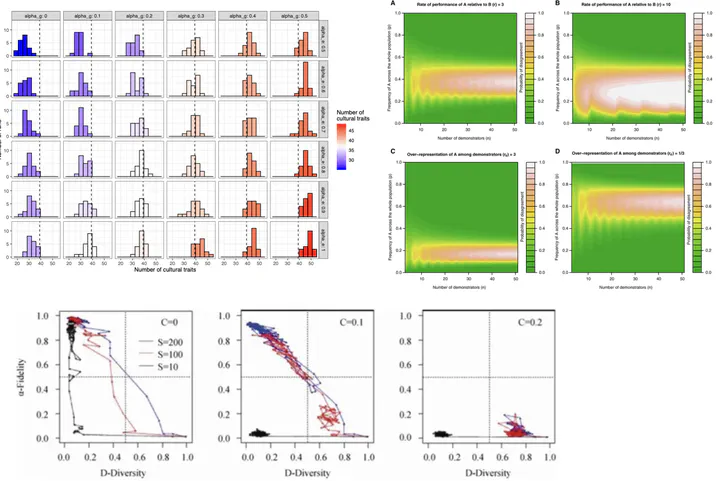Individual-based models of cultural evolution

I started my academic career as a modeller (in fact, as an artificial life/robotics researcher: this is my first publication ever), and I continue to believe that computational models are a fundamental tool for advancing research in cultural evolution. On the one hand, models are excellent theory-generating machines: they allow to formalise thought experiments and explore their consequences, which is often impossible by intuition alone. On the other hand, models make theories explicit and directly testable by other researchers.
In general, I use models both to explore theoretical questions in cultural evolution and to simulate empirical dynamics — for example, the spread of information on social media. Recent topics I have worked on include:
whether interventions that increase trust in reliable news are more effective than those that decrease trust in fake news: they are — since reliable news is much more abundant than fake news;
whether cultural stability can emerge without copying or selection: it can;
how stable individual tendencies interact with social learning forces: because individual tendencies are directional, unlike social learning forces, they tend to stabilise culture in the direction they point to.
I have also published an open access manual on individual-based models in cultural evolution: Individual-based models of cultural evolution. A step-by-step guide using R. A physical version is available with Routledge.